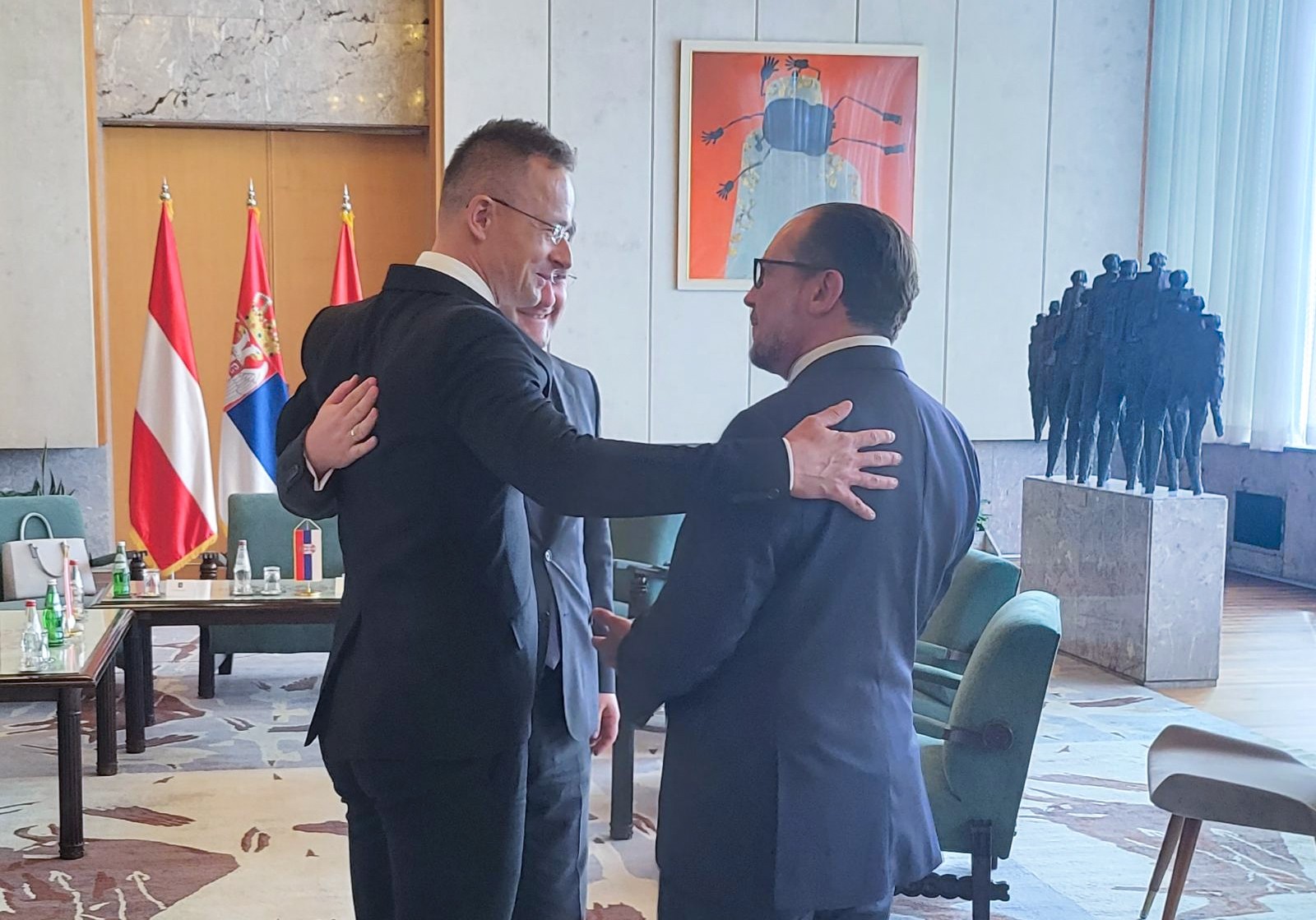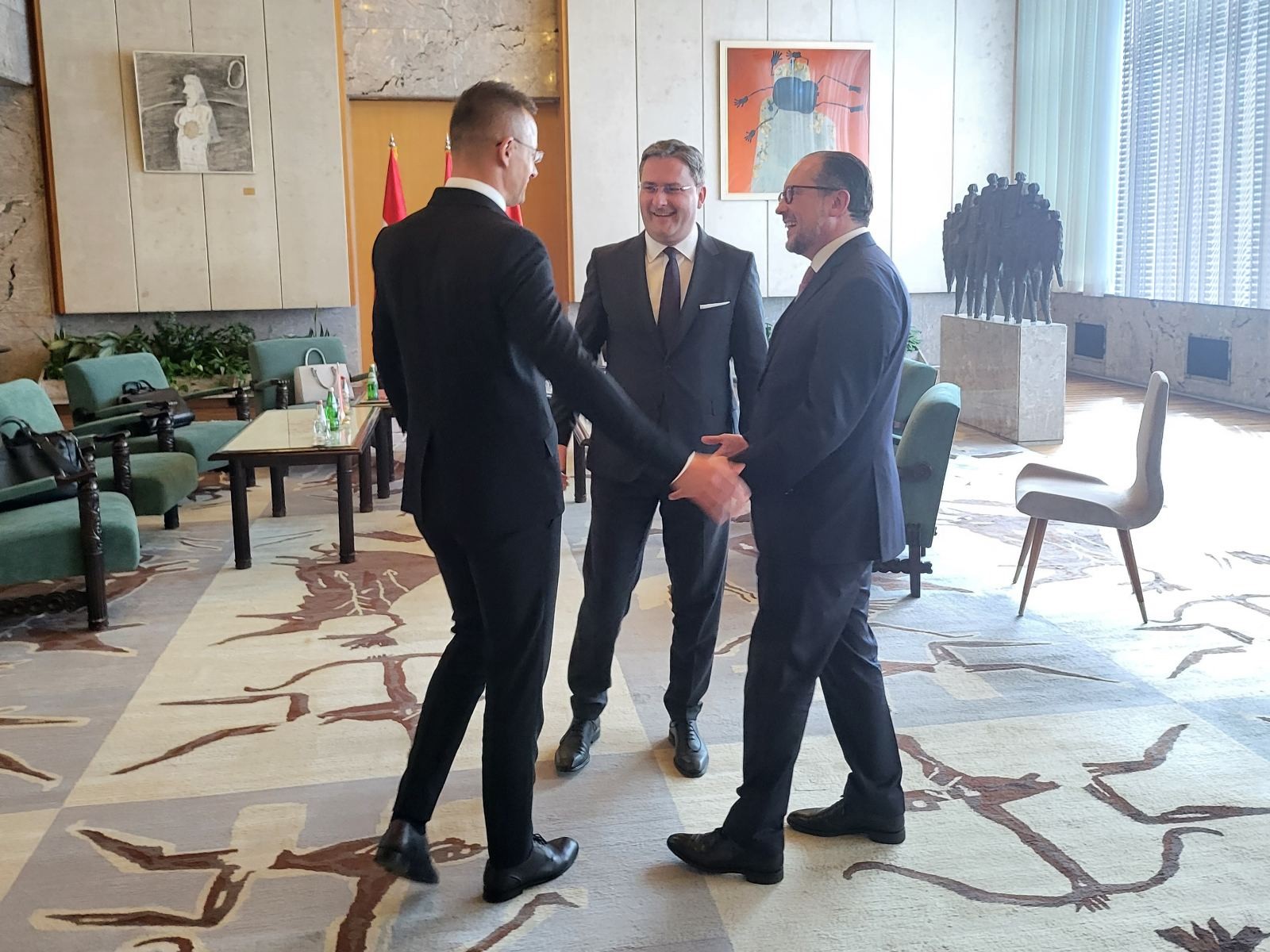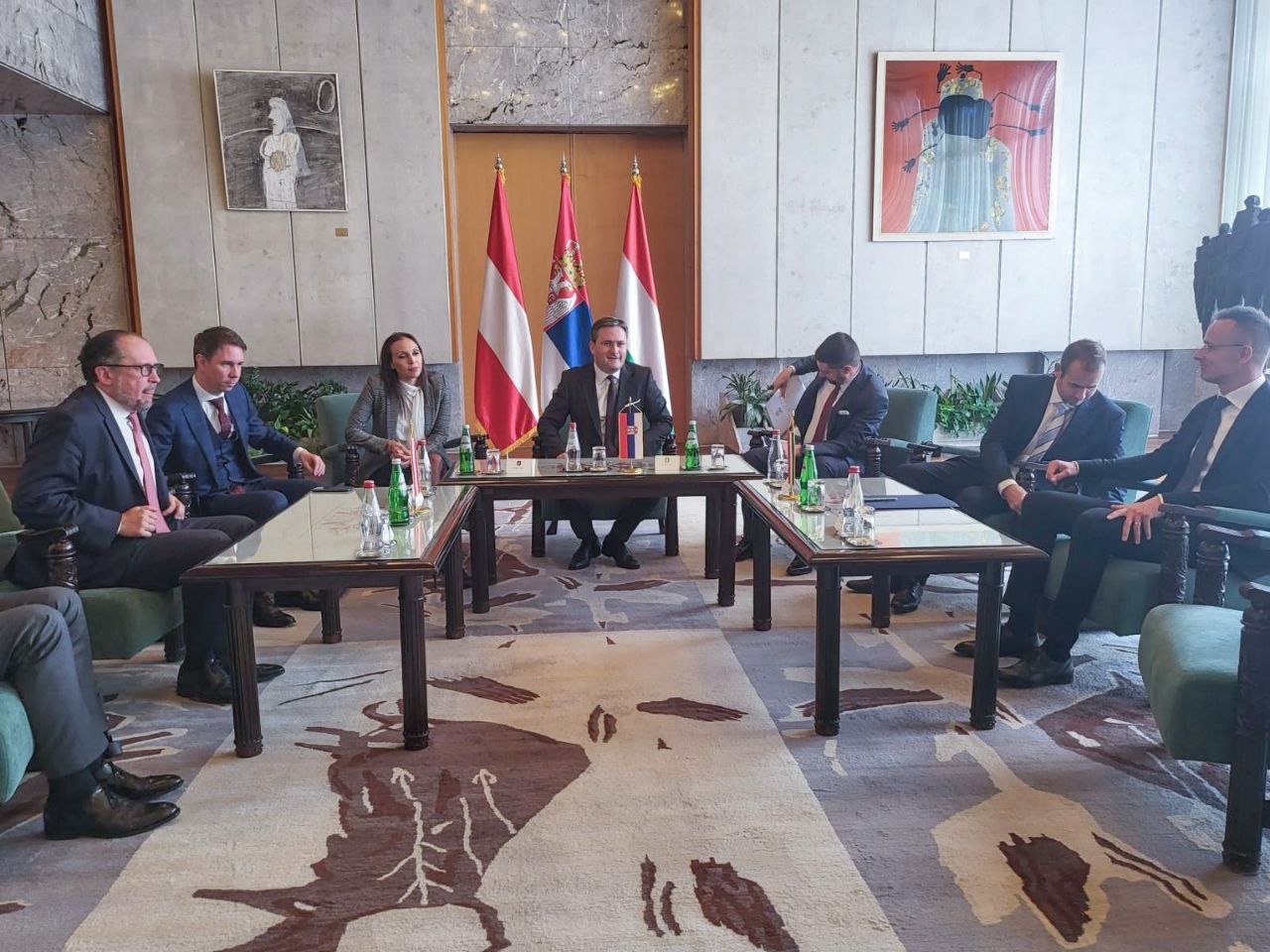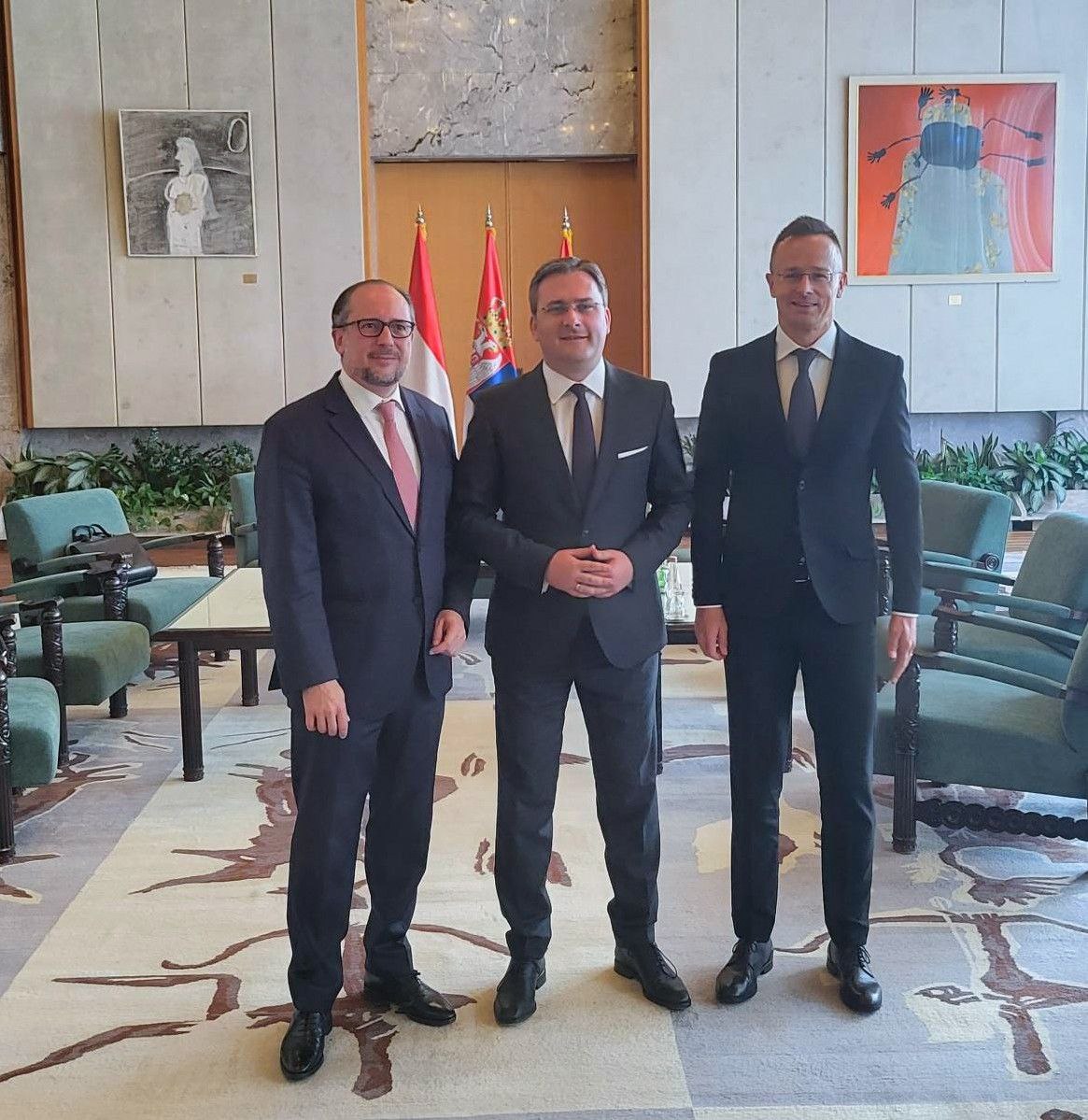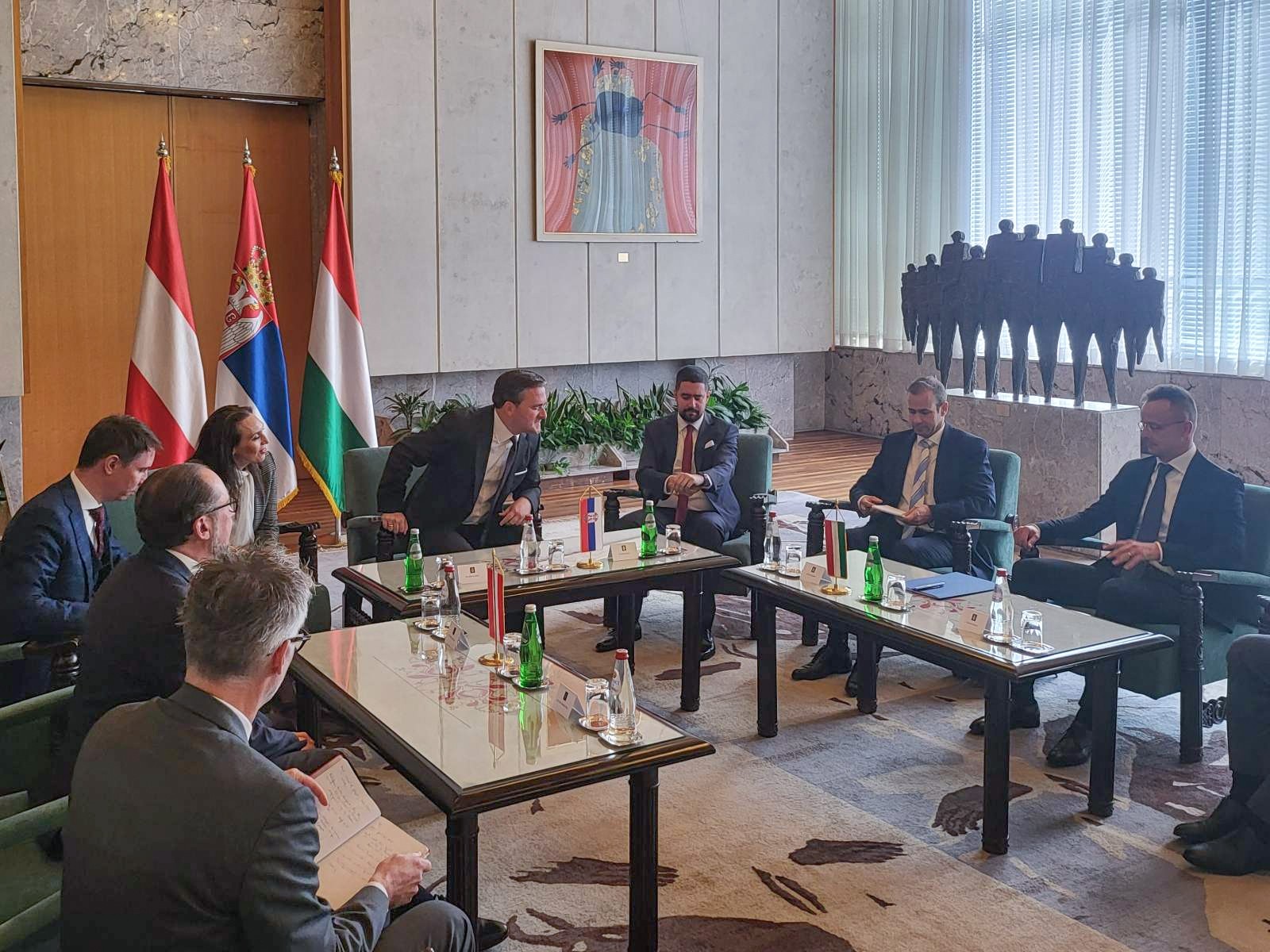Ministers of Serbia, Austria and Hungary about migration and energy security
One of the meeting topics was the improvement of cooperation in combating irregular migration, and Minister Selaković noted that Serbia continuously received praise from the EU for responsible and constructive action to solve this problem.
Selaković emphasised that Serbia was open to partner cooperation with its neighbors in terms of migration and migration policies in order to contribute to solving common challenges such as migrant smuggling, the development of legal routes for migration and the effective implementation of readmission agreements and arrangements.
According to him, as a country of the transit routing, Serbia will continue to provide adequate reception centres for accommodation of migrants, as well as food and health care for all migrants on its territory, in accordance with the highest standards of international humanitarian law.
The Ministers discussed concrete possibilities of intensifying cooperation in border protection and control.
According to Minister Selaković, by the end of the year Serbia will significantly harmonise its visa policy with the EU visa policy in order to avoid to be used as a point of entry for illegal migration, and currently additional measures are being considered for preventing the entry of persons from third countries with a risk of illegal migration.
At the meeting, the Ministers also paid considerable attention to the issue of energy security and Selaković informed the interlocutors about Serbia's efforts towards diversifying energy supply. He pointed out that the non-exemption of Serbia from the EU sanctions on the import of Russian oil via the Janaf pipeline at the initiative of Croatia, as well as the use of energy products for political purposes, was a worrying and hostile gesture.
The Minister of Foreign Affairs of Serbia took the opportunity to thank his colleagues from Hungary and Austria for their support to Serbia on its way to full membership in the EU and expressed his satisfaction with the continuous strengthening of economic cooperation between the three countries.
The Ministers exchanged opinions on the situation in the region of the Western Balkans and Selaković referred to Priština's initiative for the membership of the so-called Kosovo in the Council of Europe, which Serbia strongly opposes, and explained that examination of application of an entity with an unresolved status would lead to new political divisions in the Council of Europe at a time when it is crucial to ensure the stability and credibility of that organisation.

